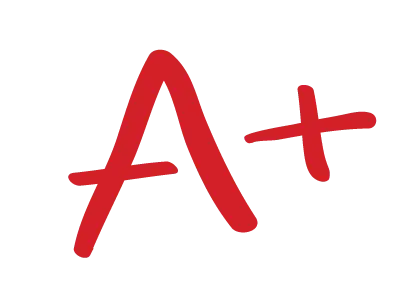EXPERIENTIAL EXERCISES
1.1 PERSONAL ASSESSMENT OF MANAGEMENT SKILLS (PAMS)
To get an overall profile of your level of skill competence, respond to the following statements using the following rating scale. Please rate your behavior as it is, not as you would like it to be. If you have not engaged in a specific activity, answer according to how you think you would behave based on your experience in similar activities. Be honest; this instrument is designed to help you tailor your learning to your specific needs.
WRITE THIS ESSAY FOR ME
Tell us about your assignment and we will find the best writer for your paper.
Get Help Now!RATING SCALE
1.
Strongly disagree
2.
Disagree
3.
Slightly disagree
4.
Slightly agree
5.
Agree
6.
Strongly agree
In regard to my level of self-knowledge:
______
1.
I seek information about my strengths and weaknesses from others as a basis for self-improvement.
______
2.
To improve, I am willing to be self-disclosing to others (that is, to share my beliefs and feelings).
______
3.
I am aware of my preferred style in gathering information and making decisions.
______
4.
I understand how I cope with situations that are ambiguous and uncertain.
______
5.
I have a well-developed set of personal standards and principles that guide my behavior.
When faced with stressful or time-pressured situations:
______
6.
I use effective time management methods such as keeping track of my time, making to-do lists, and prioritizing tasks.
______
7.
I reaffirm my priorities so that less important things don’t drive out more important things.
______
8.
I maintain a program of regular exercise for fitness.
______
9.
I maintain an open, trusting relationship with someone with whom I can share my frustrations.
______
10.
I know and practice several temporary relaxation techniques such as deep breathing and muscle relaxation.
______
11.
I maintain balance in my life by pursuing a variety of interests outside work.
When I approach a typical, routine problem:
______
12.
I state clearly and explicitly what the problem is. I avoid trying to solve it until I have defined it.
______
13.
I generate more than one solution to the problem instead of identifying only one obvious solution.
______
14.
I keep steps in the problem-solving process distinct; that is, I define the problem before proposing alternative solutions, and I generate alternatives before selecting a single solution.
When faced with a complex or difficult problem that does not have an easy solution:
______
15.
I define a problem in multiple ways. I don’t limit myself to just one problem definition.
______
16.
I unfreeze my thinking by asking lots of questions about the nature of the problem before considering ways to solve it.
______
17.
I think about the problem from both the left (logical) side of my brain and the right (intuitive) side of my brain.
______
18.
I avoid selecting a solution until I have developed many possible alternatives.
______
19.
I have specific techniques that I use to help develop creative and innovative solutions to problems.
When trying to foster more creativity and innovation among those with whom I work:
______
20.
I make sure divergent points of view are represented or expressed in every complex problem-solving situation.
______
21.
I try to acquire information from individuals outside the problem-solving group who will be affected by the decision, mainly to determine their preferences and expectations.
______
22.
I provide recognition not only for those who come up with creative ideas (the idea champions) but also for those who support others’ ideas (supporters) and who provide resources to implement them (orchestrators).
______
23.
I encourage informed rule breaking in pursuit of creative solutions.
When I have to provide negative feedback or offer corrective advice:
______
24.
I help others recognize and define their own problems when I counsel them.
______
25.
I am clear about when I should coach someone and when I should provide counseling instead.
______
26.
When I give feedback to others, I avoid referring to personal characteristics and focus on problems or solutions instead.
______
27.
When I try to correct someone’s behavior, our relationship is strengthened.
______
28.
I am descriptive in giving negative feedback to others. That is, I objectively describe events, their consequences, and my feelings about them.
______
29.
I take responsibility for my statements and point of view—for example, “I have decided” instead of “They have decided.”
______
30.
I identify some area of agreement in a discussion with someone who has a different point of view.
______
31.
I don’t talk down to those who have less power or less information than I do.
______
32.
Page 28
When discussing someone’s problem, I respond with a reply that indicates understanding rather than advice.
When it is important to obtain more power:
______
33.
I put forth more effort and take more initiative than expected in my work.
______
34.
I am continually upgrading my skills and knowledge.
______
35.
I support organizational ceremonial events and activities.
______
36.
I form a broad network of relationships with people throughout the organization at all levels.
______
37.
In my work, I strive to generate new ideas, initiate new activities, and minimize routine tasks.
______
38.
I send personal notes to others when they accomplish something significant or when I pass along important information to them.
______
39.
I refuse to bargain with individuals who use high-pressure negotiation tactics.
______
40.
I avoid using threats or demands to impose my will on others.
When another person needs to be motivated:
______
41.
I determine whether the person has the necessary resources and support to succeed in a task.
______
42.
I use a variety of rewards to reinforce exceptional performances.
______
43.
I design task assignments to make them interesting and challenging.
______
44.
I make sure the person gets timely feedback from those affected by task performance.
______
45.
I help the person establish performance goals that are challenging, specific, and time bound.
______
46.
Only as a last resort do I attempt to reassign or release a poorly performing individual.
______
47.
I discipline when effort is below expectations and capabilities.
______
48.
I make sure that people feel fairly and equitably treated.
______
49.
I provide immediate compliments and other forms of recognition for meaningful accomplishments.
When I see someone doing something that needs correcting:
______
50.
I avoid making personal accusations and attributing self-serving motives to the other person.
______
51.
I encourage two-way interaction by inviting the respondent to express his or her perspective and to ask questions.
______
52.
I make a specific request, detailing a more acceptable option.
When someone complains about something I’ve done:
______
53.
I show genuine concern and interest, even when I disagree.
______
54.
I seek additional information by asking questions that provide specific and descriptive information.
______
55.
I ask the other person to suggest more acceptable behaviors.
When two people are in conflict and I am the mediator:
______
56.
I do not take sides but remain neutral.
______
57.
I help the parties generate multiple alternatives.
______
58.
I help the parties find areas on which they agree.
When I have an opportunity to empower others:
______
59.
I help people feel competent in their work by recognizing and celebrating their small successes.
______
60.
I provide regular feedback and needed support.
______
61.
I provide all the information that people need to accomplish their tasks.
______
62.
I highlight the important impact that a person’s work will have.
When delegating work to others:
______
63.
I specify clearly the results I desire.
______
64.
I specify clearly the level of initiative I want others to take (for instance, wait for directions, do part of the task and then report, do the whole task and then report).
______
65.
I allow participation by those accepting assignments regarding when and how work will be done.
______
66.
I avoid upward delegation by asking people to recommend solutions, rather than merely asking for advice or answers, when a problem is encountered.
______
67.
I follow up and maintain accountability for delegated tasks on a regular basis.
When I am in the role of leader in a team:
______
68.
I know how to establish credibility and influence among team members.
______
69.
I am clear and consistent about what I want to achieve.
______
70.
I build a common base of agreement in the team before moving forward with task accomplishment.
______
71.
I articulate a clear, motivating vision of what the team can achieve along with specific short-term goals.
When I am in the role of team member:
______
72.
I know a variety of ways to facilitate task accomplishment in the team.
______
73.
I know a variety of ways to help build strong relationships and cohesion among team members.
When I desire to make my team perform well, regardless of whether I am a leader or member:
______
74.
I am knowledgeable about the different stages of team development experienced by most teams.
______
75.
I help the team avoid groupthink by making sure that sufficient diversity of opinions is expressed in the team.
______
76.
Page 29
I diagnose and capitalize on my team’s core competencies or unique strengths.
______
77.
I encourage exceptionally high standards of performance and outcomes that far exceed expectations.
When I am leading change:
______
78.
I usually emphasize a higher purpose or meaning associated with the work I do.
______
79.
I keep track of things that go right, not just things that go wrong.
______
80.
I frequently give other people positive feedback.
______
81.
I work to close performance gaps—the difference between good performance and great performance.
______
82.
I express gratitude frequently and conspicuously, even for small acts.
______
83.
I know how to get people to commit to my vision of positive change.
______
84.
I know how to unlock the positive energy in other people.
______
85.
I express compassion toward people who are facing pain or difficulty.
SOURCE: David A. Whetten and Kim S. Cameron, Developing Management Skills, 6th ed. pp. 23–27. Copyright 2005. Reproduced by permission of Pearson Education, Inc., Upper Saddle River, New Jersey.
Introducing our Online Essay Writing Services Agency, where you can confidently place orders for a wide range of academic assignments. Our reputable homework writing company specializes in crafting essays, term papers, research papers, capstone projects, movie reviews, presentations, annotated bibliographies, reaction papers, research proposals, discussions, and various other assignments. Rest assured, our content is guaranteed to be 100% original, as every piece is meticulously written from scratch. Say goodbye to concerns about plagiarism and trust us to deliver authentic and high-quality work.



